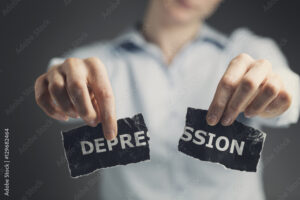 Compared to topic 1, I find this debate to be much more complex when trying to determine a position. Even adults struggle with social media, so expecting children to manage it in a healthy, balanced way seems unrealistic. Nevertheless, I appreciate that it allows people to connect with family and friends in ways that were previously not possible. I think of childhood friends that I lost contact with and wonder if these relationships might have been maintained had this technology been available during my youth. Both sides of the debate made some very valid points. From the agree side perspective that social media is designed to be addictive, it is evident that children spend less time playing outside. As well, the identities of children have become so intertwined with their presence on social media. From the disagree perspective, social media is not necessarily ruining childhood, and it is important for parents to model healthy digital habits. Additionally, the fact that children’s experiences are different from previous generations does not inherently make it negative.
Compared to topic 1, I find this debate to be much more complex when trying to determine a position. Even adults struggle with social media, so expecting children to manage it in a healthy, balanced way seems unrealistic. Nevertheless, I appreciate that it allows people to connect with family and friends in ways that were previously not possible. I think of childhood friends that I lost contact with and wonder if these relationships might have been maintained had this technology been available during my youth. Both sides of the debate made some very valid points. From the agree side perspective that social media is designed to be addictive, it is evident that children spend less time playing outside. As well, the identities of children have become so intertwined with their presence on social media. From the disagree perspective, social media is not necessarily ruining childhood, and it is important for parents to model healthy digital habits. Additionally, the fact that children’s experiences are different from previous generations does not inherently make it negative.
As a parent, it is concerning to hear reports such as the case of Amanda Todd, who died by suicide following experiences of online bullying. Incidents like these, which are frequently covered by the media, can contribute to the perception that social media is negatively impacting childhood. The story of Madison Holleran, who died by suicide after facing mental health struggles in university, highlights that social media posts may not accurately represent their real life. It is important to mention that while individuals are aware the content they share online does not fully reflect their lives, they often find it challenging to maintain this perspective when engaging with social media as consumers. Although social media may have contributed to Madison’s mental health challenges, her family decided to use Facebook to share her story. This reflects the complex nature of social media platforms.
experiences of online bullying. Incidents like these, which are frequently covered by the media, can contribute to the perception that social media is negatively impacting childhood. The story of Madison Holleran, who died by suicide after facing mental health struggles in university, highlights that social media posts may not accurately represent their real life. It is important to mention that while individuals are aware the content they share online does not fully reflect their lives, they often find it challenging to maintain this perspective when engaging with social media as consumers. Although social media may have contributed to Madison’s mental health challenges, her family decided to use Facebook to share her story. This reflects the complex nature of social media platforms.
 I agree that it is the responsibility of parents to model and teach healthy digital habits, as well as safe social media usage, to their children. However, I am concerned about children who lack adults in their lives to provide this guidance. Although parents may actively oversee their children’s social media activities, certain negative aspects of these platforms can still go unnoticed. It may be advantageous for more in-depth instruction on social media to happen within the school setting. As well, maybe government regulation will be key in helping protect children from the harms of social media. I do think the solution will have to be a multifaceted approach. Research indicates there may be a link between high levels of social media use and factors such as depression and mental health, especially in younger children. In the article, Whatever Happened to Childhood?, they discuss how marketing targets younger children to dress and act like teenagers. Children are exposed to a significant amount of marketing on social media. I recall this concern arising in my own childhood, particularly regarding commercials on television that specifically targeted young audiences. While waiting in line at the grocery store with my mother, I would notice images of beautiful, flawless women featured on magazine covers. Back then, I did not realize how much editing went into those images. Now that everyone has access to similar filters on social media, it is easier to see how unrealistic those appearances are. However, as with Madison’sstory, many people struggle to recognize this.
I agree that it is the responsibility of parents to model and teach healthy digital habits, as well as safe social media usage, to their children. However, I am concerned about children who lack adults in their lives to provide this guidance. Although parents may actively oversee their children’s social media activities, certain negative aspects of these platforms can still go unnoticed. It may be advantageous for more in-depth instruction on social media to happen within the school setting. As well, maybe government regulation will be key in helping protect children from the harms of social media. I do think the solution will have to be a multifaceted approach. Research indicates there may be a link between high levels of social media use and factors such as depression and mental health, especially in younger children. In the article, Whatever Happened to Childhood?, they discuss how marketing targets younger children to dress and act like teenagers. Children are exposed to a significant amount of marketing on social media. I recall this concern arising in my own childhood, particularly regarding commercials on television that specifically targeted young audiences. While waiting in line at the grocery store with my mother, I would notice images of beautiful, flawless women featured on magazine covers. Back then, I did not realize how much editing went into those images. Now that everyone has access to similar filters on social media, it is easier to see how unrealistic those appearances are. However, as with Madison’sstory, many people struggle to recognize this.
As discussed in the book review, The great rewiring: is social media really behind an epidemic of teenage mental illness?, argues that there is no measurable association between well-being of children and start of social media  and that mental health issues are a much more complex problem. One positive she noted was that younger people are talking about their struggles, but we lack resources to help support people with mental health issues. She mentions that while social media is not solely responsible for youth mental health issues, reforms are needed due to the significant time children spend on these platforms.
and that mental health issues are a much more complex problem. One positive she noted was that younger people are talking about their struggles, but we lack resources to help support people with mental health issues. She mentions that while social media is not solely responsible for youth mental health issues, reforms are needed due to the significant time children spend on these platforms.
Social media offers several important benefits, such as initiatives like the Buddy project, that connects individuals with similar interests to foster support and help in suicide prevention. It also offers a way to connect with people who struggle with similar issues like eating disorders or cancer diagnoses. For example, I know of an individual who created a private Facebook page for close friends and family to document their journey with cancer, providing an efficient way to keep loved ones informed. Additionally, social media is a powerful tool for social movements to help create change, as well as, encouraging people to donate money or blood. While it is important to acknowledge the negative aspects of social media, there are also notable benefits. Understanding the pros and cons of social media are essential for an informed understanding and discussion.
Jenna,
As a parent, the concern is real, and I think I am just seeing the beginning of social media influencing my children. They are 13 and 11 years old. Only in the last year have I conceded to a couple of apps for my older one. It was a huge family decision. You are correct in saying that parents need to guide children as they use these apps. Kids are opening up Pandora’s Box. While this seems extreme, it is not. Kids cannot process everything they see or hear on the internet. Sometimes it is not age-appropriate, sometimes it is not real.
I do realize that I am raising digital natives, and their knowledge and use of technology are totally different than mine. They rely on social media apps to communicate with their friends, and we don’t even have a landline to make a phone call anymore!
Where is the balance? I hope to find it.
I agree that social media is a huge concern as a parent. My children are 10 and 12 and it is scary trying to navigate social media with them. I am not sure what the best answer is or how to find the right balance. I just try the best I can to have the conversations with them about how to use social media responsibly.
Hi Jenna,
You brought up a point that I had not yet considered while in this debate. It is very easy to demonize social media (which is ironic because I see most criticism of it ON social media), so we often forget its many benefits, especially in terms of connection. I remember all the friends I made as a child at summer camps, kids at the park near my grandparents’ house in a different city, or even kids I met while travelling to different provinces and countries, only to never see them again with no way of reaching out or remaining in contact. Now that I have entered the world of social media as an adult, this has not been the case. I travelled to the Dominican and met a few locals there as well as others at the resort from different parts of the world that I still keep in contact with, thanks to social media. Having that many friends from around the world is something unprecedented, and it is amazing. Children these days who have social media do not have to experience a “long lost friend” like we had to, and that is something that should be celebrated, but is often forgotten because of the tendency to only focus on the negatives of social media. That being said, your reference to the Amanda Todd case brought back memories for me. I remember being young when she passed and I remember a lot of mistrust in social media after that. Schools did campaigns, parents were more cautious of our social media usage, and even the RCMP was doing school visits. Your concluding thought that the most powerful tool we have is knowledge is an important one. We already know that social media is deeply embedded in our society. The best thing we can do is prepare ourselves, our students, and children to navigate it through the lens of critical thought is crucial. Your analogy of a double-edged sword captures this topic well. I am left wondering how you think we, as educators, can strike a balance between celebrating the connection social media offers and still addressing the very real risks it poses, especially for young, impressionable users?
Thank you for your comment and question! I wish I knew how to find the right balance between celebrating the connection social media offers and addressing its risks, especially as a parent. It is a struggle because technology has advanced so quickly, and it is hard to keep up. I do believe that the more everyone is educated about social media and its risks, the better we all will be. As a parent, I have tried to hold off on social media until I feel my children have some level of understanding of the risks. I also believe that having open dialogue with my children and encouraging them to discuss social media is vital.
Thanks for this thoughtful and balanced post, Jenna! I appreciate how you capture the complexity of social media’s impact on childhood—it’s definitely not black and white.
As a parent and educator, I’ve seen social media both connect and isolate kids. Stories like Amanda Todd’s and Madison Holleran’s really highlight the real struggles behind the screens, showing why healthy digital habits and strong adult guidance are so crucial—especially for kids without consistent support.
I agree that schools and government need to do more, as relying on parents alone isn’t enough. Regulation is needed to address marketing and addictive design targeting young minds.
At the same time, your examples of social media’s positive uses—support groups, awareness campaigns, community building—resonate with me. Social media isn’t inherently bad; it’s a powerful tool that requires thoughtful, balanced use.
Thanks again for sharing this nuanced perspective. Conversations like these help us navigate the digital world with more care and understanding.
Hi Jenna,
Your point about what happens when there is no adult present to model and teach healthy digital habits really resonated with me. Even when parents are physically present, many are not fully aware of what is happening behind the screens. The truth is, parents don’t know what they don’t know.
As an educator, I stay fairly up to date on the latest lingo, platforms, and online trends—but only because I work closely with teenagers and make a point of asking questions and being curious. The moment I stop paying attention or stop engaging in those conversations, I know I will be out of the loop. Social media does not take breaks, which is why ongoing awareness and monitoring are so important. But how do we keep parents informed? And how do we support students who do not have an adult guiding them toward healthy digital habits? These are two questions that concern me—because without strong, informed adults in their lives, kids are left to navigate a complex digital world on their own, often without the tools or understanding they need to do so safely.
Thank you for sharing, Jenna!
Thank you for sharing such a well-rounded response. I agree this topic is incredibly complex, especially because the impact of social media isn’t one-dimensional. You raise an important point about how even adults struggle with healthy social media use, which makes it even more unrealistic to expect children to navigate it without guidance.
I really do like your examples of both the harm (like the cases of Amanda Todd and Madison Holleran) and the potential good (like the Buddy Project and support groups). It highlights just how nuanced this issue is. Your mention of modeling and media literacy stood out to me, as a parent, our involvement is very crucial, but I agree that not all kids have that support. Integrating digital citizenship education into schools could be a valuable step.
Ultimately, your call for a multifaceted approach feels right. Social media isn’t inherently bad or good it’s how we engage with it, support kids through it, and regulate its influence that makes the difference.
Nofisat
Hi Jenna,
Thank you for your thoughtful reflection. I am a new mom and I am concerned about the world I will be raising my kids in. I completely agree that we, as parents, should be modelling healthy digital habits. Our children learn so much from what we do as well as what we say. If we are saying one thing but doing another, kids pick up on that and tend to do what they want to do. I do agree that government regulation would be the more beneficial way of dealing with social media issues with our children. While I agree that connection is important, digital connection is warping our sense of reality through AI images, filters, and photoshop. The increased use of filters on photos is increasing the damage to self esteem and self worth.
I will add a ray of hope in this storm of negativity. App developers are starting to create apps to help with self care. I recently found the equivalent of a Tamagotchi that helps with self-care. The Finch App uses a mixture of gamification and cognitive behaviour therapy to promote self care. I downloaded it on a whim (postpartum iykyk) to see what it was all about. I actually enjoyed my experience so much I am still using it.
I think there needs to be moderation around social media. As a middle years teacher, I see the good and the bad of social media usage by our adolescents. I think that if anything has the capability to allow strangers to enter into your home, bedroom or bathroom without parents knowing who is there, we need to seriously consider its place in society.